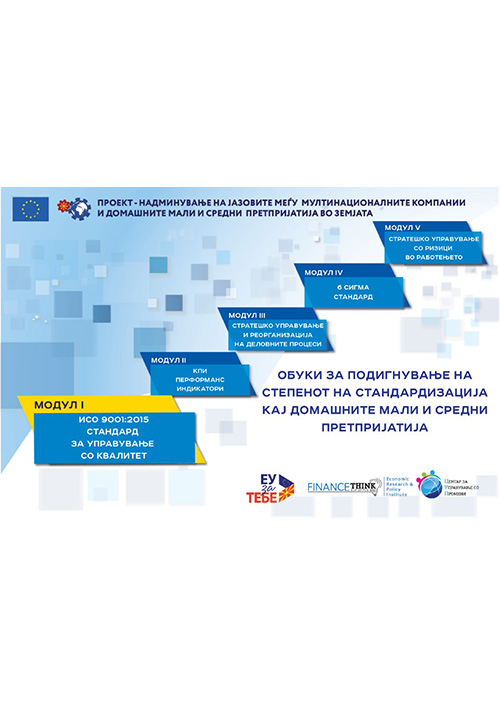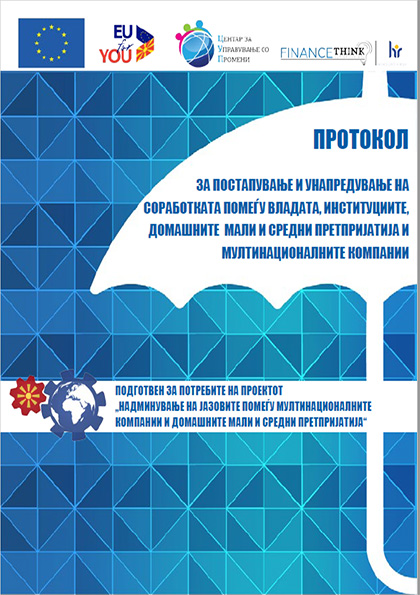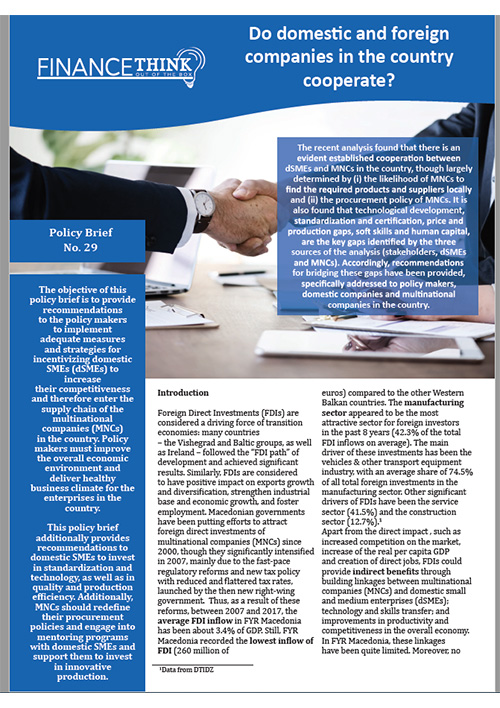Research
Training needs assessment of domestic SMEs
Author: Roman Papadimitrov & Jasna Pajkovska
year: 2019
In the first phase of the project, research was conducted by Finance Think - Institute for Economic Research and Policy, to identify barriers in the exchange of goods and services between domestic and multinational companies and to identify new opportunities in the supply chain and value added. According to the results of the research, the following gaps in the cooperation between domestic SMEs and MNC and the shortcomings observed in domestic SMEs by MNC present in the Republic of Macedonia were identified: • Insufficient technological development and willingness to respond to claims; • Lack of production standards and certification; • Limited production facilities; • Insufficient responsibility in fulfilling the agreed obligations; • Inadequate organizational structure and culture; • Insufficient supply of products; • Constant quality of the offered products and services; • Unskilled labor; • High prices of products / services; • Lack of skills for presentation of products and companies; • Lack of soft skills. In the second phase of the project, the Center for Change Management approached the implementation of research on the assessments of the training needs of small and medium enterprises in order for them to meet the requirements of the MNC on the territory of the Republic of Macedonia. 7 The assessment of the training needs of domestic companies is part of the overall analysis of the state of networking and connection of domestic SMEs and MNCs in Macedonia. The assessment of training needs helps to identify the differences between the knowledge that domestic SMEs have and the knowledge that is a prerequisite for achieving cooperation with the MNC in Macedonia. Training and development are a key part of any company's goals and objectives. They contribute to increasing the competence and competitiveness of companies, which is especially important in the process of achieving cooperation with foreign companies. Continuous technological development means the need for constant investment in training and employee development. With proper training and development, productivity increases many times over. There are several aspects to identifying the training needs of members of organizations. First, you need to identify what skills are needed to effectively complete work operations or the process. Second, to assess the existing skill levels of the team members and, finally, to determine the gap. The gap is defined as the difference between the skills needed to complete the job and the existing skills of each individual team member. Defining the specific training needs of domestic small and medium-sized companies is based on the aforementioned detailed research on the differences between the current state of SMEs and the desired situation.







